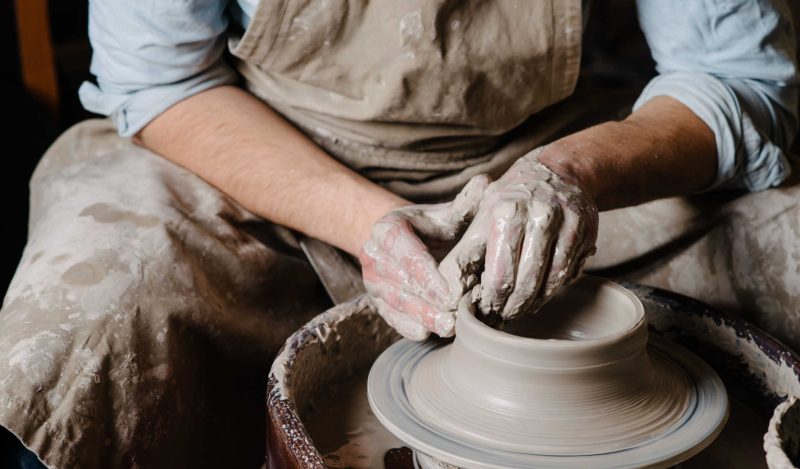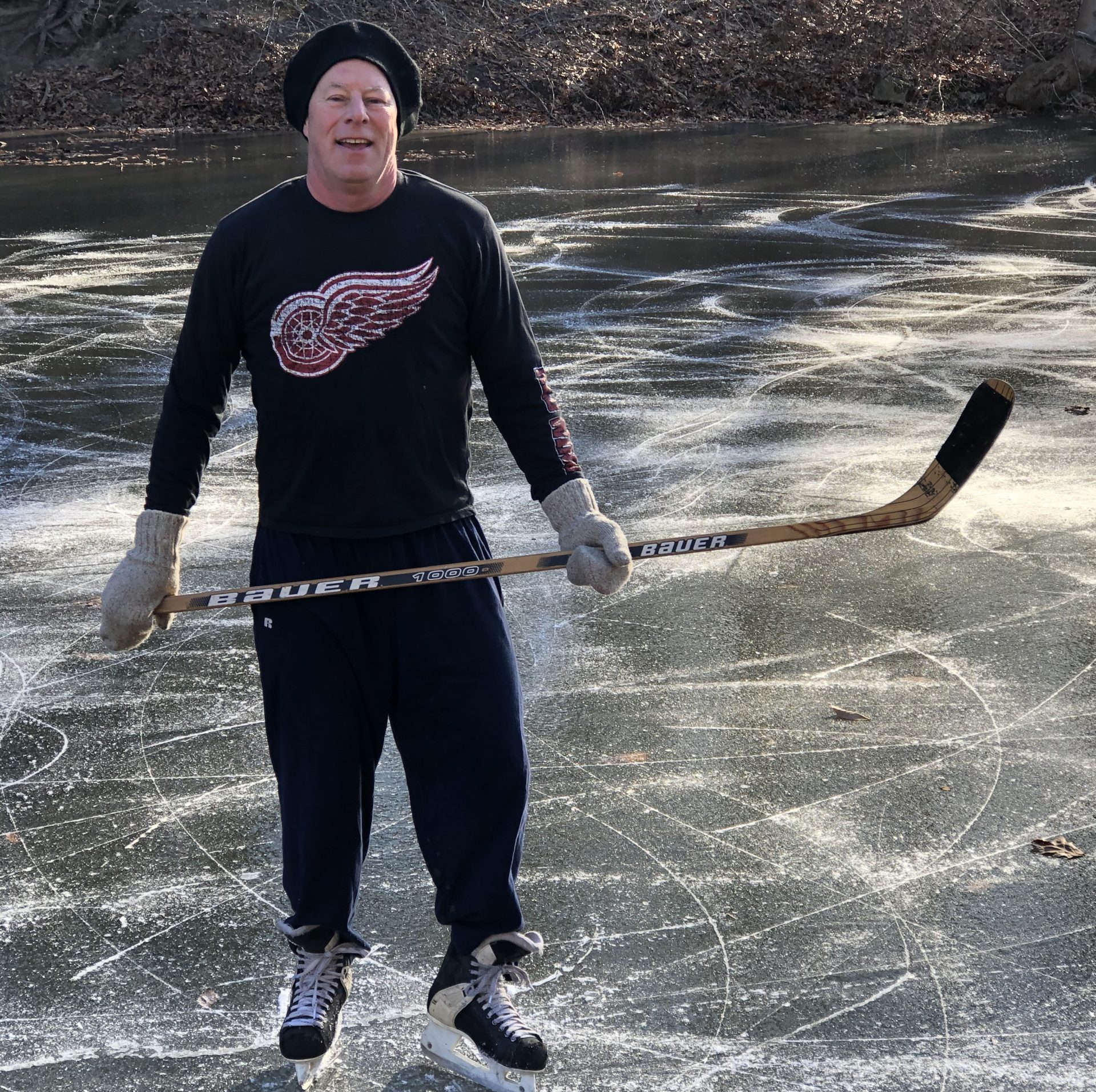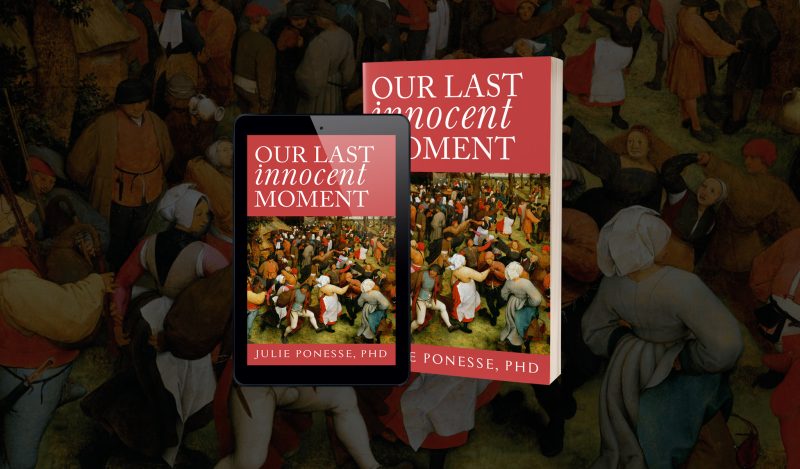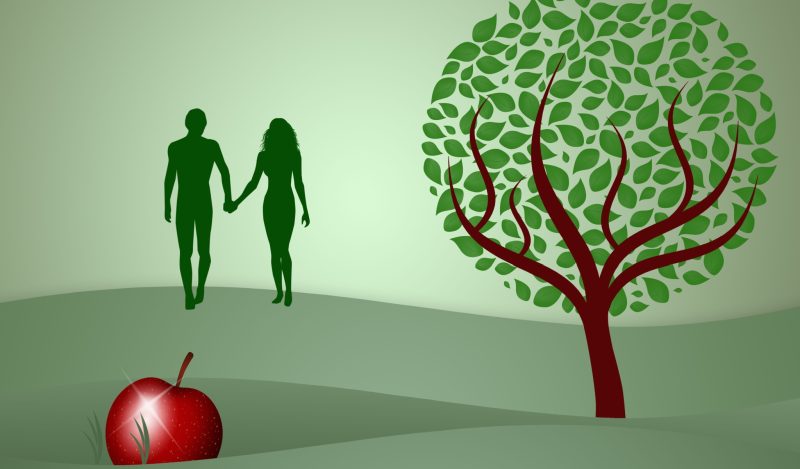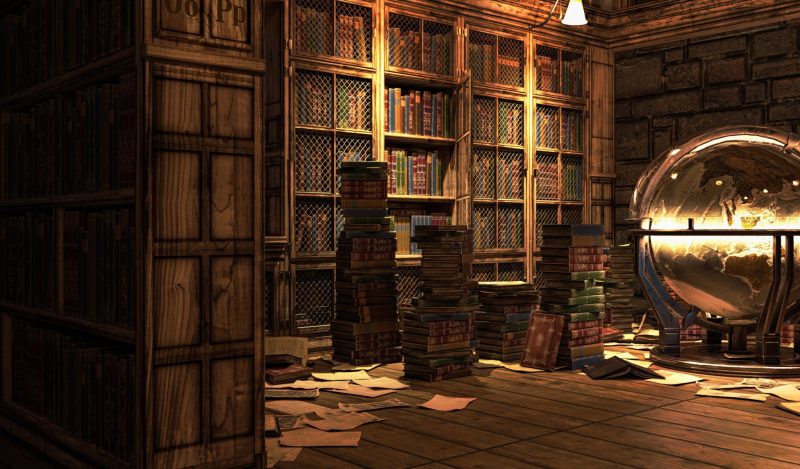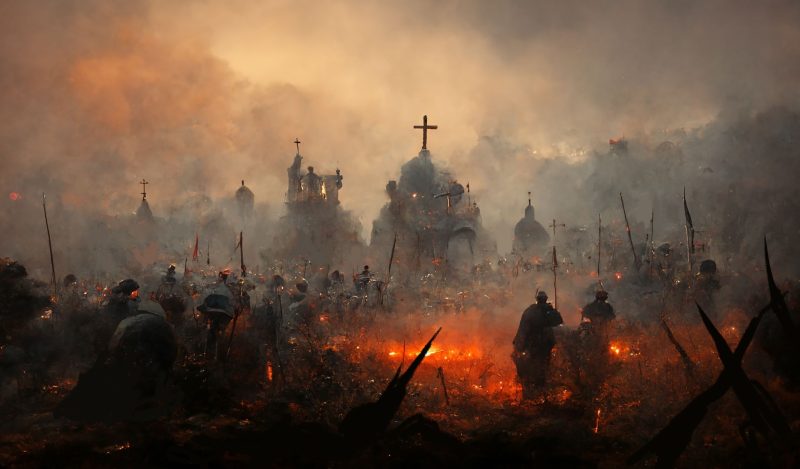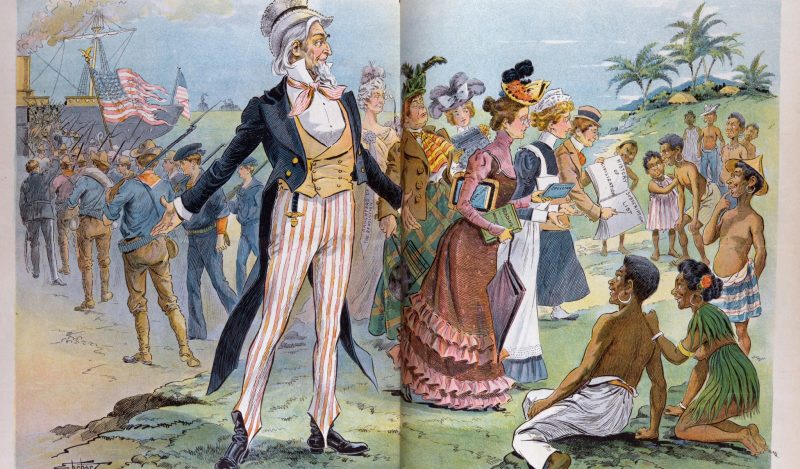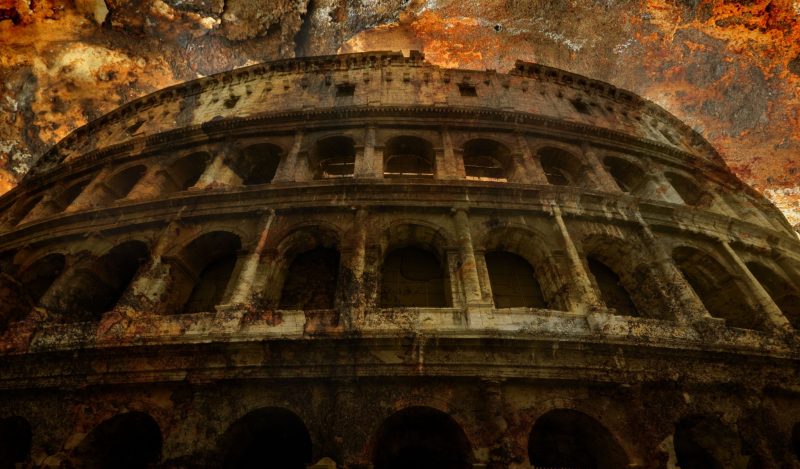As a college senior, I took a Western Civilization course. Twice weekly, the unfashionably conservative L. Pearce Williams, delivered spirited, outstanding lectures to a large, full hall.
In addition to those lectures and three exams, we had weekly “discussion sections” comprising a dozen students. My section was led by a teaching assistant named Camille, a smart, soft-spoken, petite strawberry blonde on whom I developed a crush. As she entered and left our small classroom on the stately main quad, she wore a beret. Ithaca, New York winters are cold. So are the springs.
During the semester, students had to typewrite a series of five-page essays based on the many assigned readings. In our final essay, we had to agree or disagree that “World War I was unavoidable.”
The following week, at the beginning of our final discussion session, Camille prefaced the handing back of the graded essays by saying, “I was disappointed that nearly all of you thought World War I was inevitable.”
Hearing this pleased me. I had opined that that terrible War could have been avoided. I observed that a series of circumstances and events portended war. But I specified various occasions when, and ways that, cooler heads could and should have prevailed, especially because the human costs of overreaction were so high.
Sounds like March, 2020. But I digress.
During that pre-grade inflation era—on the first day of class, Professor Williams said that typically, one-third of the 250 students would fail—Camille gave me an A+ on that essay and wrote, in tiny letters, in pencil, on textured typing paper, a message several lines long agreeing with my conclusion, praising my writing and thanking me for actively participating in class discussions—I was usually serious but sometimes made jokes that she laughed at; males notice this—before concluding that it had been “a pleasure” having me in her class.
It’s the only A+ that I ever remember getting. I think I still have that paper in a box in my basement that contains other mementos, including a typed personal letter from Ivan Illich, postmarked from Mexico, that he wrote a few years before he got a brain tumor, for which he refused treatment, and that killed him in 2002. Ivan was one of my heroes. I was touched that he took the time to say something nice about an essay I had sent him, unbidden. As the author of Tools for Conviviality and Medical Nemesis, which assails overmedicalization, he would have strongly criticized Coronamania.
Although that basement box contains many keepsakes: letters, newspaper clippings, ticket stubs, etc., I haven’t opened it in years. One must live in the present. I could just throw that box away; without relying on documents, I still remember all the stuff that’s worth remembering. But for some reason, I keep these items. Maybe I think that, someday, laying my hands on some decades-old pieces of paper will give some memories extra resonance and confirm that those things really happened.
Be that as it may, less than a month after the class ended, I called Camille and asked her out on a date. In addition to her laughing at my jokes, her message at the bottom of the essay made me think that she might have felt some type of way about me.
Incorrect. She turned me down, explaining that she already had a boyfriend. During the semester, I had seen her at a cafe with some dour guy. They didn’t seem to be having fun. Though I guess there can be more important things in a relationship than mirthfulness. Regardless, over the course of a few weeks, Camille had given me an A+ and then, an F. Girl power!
It turned out better that way. If Camille had taken up with me, I wouldn’t have met my smart, calm wife, Ellen, a year later and 215 miles away. We’re highly compatible and complementary and have been very happy together for forty years. And she’s prettier than Camille. By coincidence, Ellen also wears a beret in the winter. We met in August, so I couldn’t have foreseen that.
Everyone’s life, like World Wars and relationships, is strongly influenced by a series of circumstances and coincidences. Where we live and who we meet and thus, what we do flows from such context. Conversely, the non-existence of various conditions precludes many events or experiences that would otherwise have followed.
One might say that this lifelong, fateful game of chance begins at conception, when we get, e.g., our mother’s musicality or our father’s height. But it starts well before that. For example, what if our parents had never met because they didn’t go to the same dance on the same night? Life presents an infinite array of what-ifs and crossed Rubicons.
Many would say that there’s no point to reflecting about the gnarly mix of circumstances that led you to where you are today. According to Tina Turner, one should never lose one minute of sleeping, worrying about the way things might have been. The past is past. Whatever happened, happened. Stop thinking about alternative scenarios. Be where your feet are. Move forward.
And context isn’t always destiny. Conditions can make some things possible. But context doesn’t always make things inevitable. Exercises of free will and judgment can enable us to break the chain of causation and avoid problems or, instead, squander good opportunities.
In this vein, I’ve read dozens of books about the Vietnam War. That War has a hold on my heart because it occurred when I was a kid. Boys not so much older than me—including from my hometown—went to Nam. Some didn’t return. As I’ve read those books, I can’t stop myself from wishing that some better decisions had been made, so that the War would not have started, or that it would have ended earlier, enabling many more young men—drafted because they were born at the wrong time—to have lived full, unwounded lives.
Rooting for history to have been different resembles rooting for sports teams to win, for movie characters to survive or for people that we like to be well and do well. Our wishes don’t mean squat. But we wish nonetheless. It’s what humans do.
For better or worse, I often look at what has already happened and think that, despite context and prologue, it didn’t have to turn out that way. My willingness to look back and envision different outcomes might explain why I figured out the “right” answer on that World War I essay and my peers didn’t.
I often think about the circumstances, or poor exercises of judgment, that enabled Coronamania. Why did it happen, despite obvious reasons that it shouldn’t have?
First, the willingness to buy into the Covid overreaction may have been rooted, as explained by psychologist Mattias Desmet, in the sense of meaninglessness that many feel in a post-modern world. Supporting a purportedly noble, “We’re all in this together” effort by taking ostensibly virtuous, though obviously futile, measures as locking down, masking, taking tests and injecting mRNA fulfilled many peoples’ need for meaning. If post-modern life didn’t leave so many people feeling existentially adrift, they would not have, like cult members, fallen for Coronamania.
I’m not sure how to fix that problem, though I don’t think it fully explains the overreaction.
If there hadn’t been a Presidential election in 2020, Coronamania seems unlikely to have happened. The disruption provided a great opportunity to oust the Orange Man.
Yet, if Trump had been the genius he claims to be and had been capable of being the adult-in-the-room, and had made the Buck Stop Here, he would have seen that he was being played and could have thwarted Coronamania. But he was also germophobic, so he panicked and deferred to people that he Trumpishly labeled “geniuses,” when they clearly were not. He should have said, “We don’t shut down countries over respiratory viruses. And we don’t print trillions of dollars to mollify people who don’t work. People, especially kids, have lives to live. Go outside. Right now. Like Sweden.”
If we had not locked down for “just two weeks,” we wouldn’t have facilitated many more months of closed public spaces, including 18 months of school closures. Letting the Lockdown camel stick its nose under the tent created enduring, creeping momentum for the broader disruption that has dragged on for three years, or the inflation, the health crisis, the suicide epidemic, and so on.
“Flattening the curve” seemed, to many, temporary, scientific and clever.
Having a legitimate, truth-seeking Media would have prevented Coronamania. This painfully true joke circulated early in the Scamdemic:
Q: Why don’t the Amish get Covid?
A: Because they don’t have TVs.
If people didn’t see/hear on their TVs or radios that some ultra-lethal virus was making people keel over on sidewalks, they wouldn’t have thought there was a “Pandemic;” because people in their hometowns weren’t keeling over on sidewalks. Nor, in real life, were significant numbers of healthy, non-old people “dying of Covid” even in hospitals. If, instead of inciting fear, the Media had told the truth about the virus’s distinctly limited risk profile, most people would have been unafraid.
But the masses love to shoot up their fast-food evening news and NY Times. They believed an onslaught of alarmist propaganda that everyone was at risk and that even kids were “super-spreaders.” The Pharma/hospital industry, which underwrites the news, was strongly motivated to build fear to create demand for their products.
If teachers and college administrators were serious thinkers and put their students first, kids—who were never at risk—wouldn’t have been harmed by, or spread, a virus and wouldn’t have missed out on irreplaceable experiences and social development.
And if college students and parents of schoolkids had protested school closures, instead of being sheep, American schools would never have closed. At the latest, all US schools should have reopened by September, 2020, as in Europe. Seeing that kids were fine would have nullified viral fear and normalized life.
But too many teachers and college students are clannish, low-information, timorous Democrats and saw political opportunity and time off in school closures.
And if various people, such as public health expert and lockdown opponent, Donald Henderson, or PCR test inventor and Fauci nemesis, Kary Mullis, had not died a few years before the scam began, they could have observed the lunacy of shutting down and mass asymptomatic testing with high-cycle PCR tests that were never intended to diagnose disease.
Though the Media would likely have refused to give these men airtime, just as they refused to cover the Great Barrington spokespeople or other mitigation critics.
If more citizens had basic science knowledge and critical thinking skills, they would have mocked all of the mitigation measures even without hearing from the Lockdown skeptics. They could have defeated the Scam by simply defying the various unlegislated emergency orders. There are far too many of us to control.
But too many American minds are focused on TikTok, Instagram, sports, celebrities, woke-ism and/or where they get their next carb hit or mind-altering substance. Ultra-potent, latter-day marijuana is the opiate of the people. So are alcohol and video games.
If more people had been willing to spend some popularity by protesting and speaking out against the obvious, destructive craziness, this nonsense would have ended much sooner.
But protest gatherings were banned. And too many people didn’t want to upset others by observing the plain stupidity of all of the viral theater. They went along to get along.
The Internet was a double-edged sword. If the Net hadn’t existed, people would have been bored out of their minds at home and would have defied house arrest.
But the Internet allowed people to skip commutes, work in PJs, binge on Netflix and order DoorDash. Laptoppers loved the lazy lockdown lifestyle. They didn’t care who the lockdowns hurt.
If there had been no Internet censorship, more lockdown/mask/test/vaxx skeptics would have seen that there were far more skeptics like them and that none of the “mitigation” was effective.
But the aggregate amount of panic-building stories on both broadcast media and The Net drowned out the truthful message of Internet Coronamania debunkers. Thus, most people never saw or heard the thoughtful criticism.
If people knew that Coronavirus vaccine efforts had historically failed because viruses mutate and that mRNA shots had not been appropriately tested on humans and presented serious threats to human health, the pro-vaxxers wouldn’t have asserted that non-injectors were grandma killers nor demanded that non-vaxxers forfeit their medical insurance and jobs.
And if employees who were mandated to inject had properly suspected that the OSHA mandates would soon be found unconstitutional and had realized that their employers needed reliable, experienced workers, they would have stood their ground and refused injection.
But medicine is America’s latter-day religion. Americans think they owe their lives to all things medical, including Pharma drugs and vaccines. So they believed to the depths of their souls that public health MDs were “experts” and the government was benevolent and that all must take the shots because they would “stop the spread.” Thus, the masses believed fervently in mRNA injections and demanded that anyone who didn’t share their misplaced faith in this sacrament was an apostate and should be damned. They were sure the shots would work simply because they were labeled “vaccines.” They were wrong.
If just a few of the foregoing conditions or reactions had been different, Coronamania could have been averted. Instead, the Covid response was an epic fail.
I suspect that, as with their World War I essays, most of my erstwhile Western Civ classmates also got the Covid reaction wrong. In both instances, they—like most people—skipped, or couldn’t process, the required readings.
Published under a Creative Commons Attribution 4.0 International License
For reprints, please set the canonical link back to the original Brownstone Institute Article and Author.
